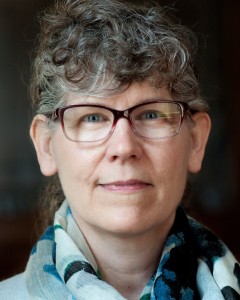Urgency and hope make great schools a possibility
- likoau
- May 4, 2015
- 3 min read
What has most impressed me about the Great Schools for All (GS4A) conversation is how open the community is to having it. Ever since the Raleigh team returned a year ago (read more about that experience here), we have been invited again and again to tell the story of how that community turned around its once struggling school system.
That does not mean there is not skepticism, or hard questions, or more work to be done. It does mean that our community is hungry, hungry for a different conversation, hungry for an alternative narrative.
John Wilkinson is pastor of Third Presbyterian Church and co-convener of the Great Schools for All Coalition
Our response will not be Raleigh’s response, but people have been taken by the Raleigh experience for two reasons. One, there are elements from their success in economic deconcentration that we might borrow or adapt. And two, the Raleigh model, while not an apples to apples comparison to Rochester, worked. We need success stories to give us a glimpse of what a different educational and economic reality here would look like.
We’ve spoken to business groups, to religious groups, to educational groups of all kinds. We’ve spoken one-on-one and in large auditoriums. And people have listened. They are hungry. We are hungry.
In my day job, I use the words “urgency” and “hope” quite a bit. Those words apply to the GS4A conversation, and to the broader work around education, and poverty, and race in our community. Here’s why.
Urgency indicates the need to take action, to organize a response. But it does not indicate that the action is reactive, or the response made from a panicked place. Change is needed, but that change cannot be driven by fear, or despair, or anxiety. Our schools need a new profile, and soon, for the sake of our children and the sake of our community. But timely change can’t be knee-jerk change. We look around and assess, gather information, foster conversations. And we act – urgently.
Hope indicates that change is possible (to paraphrase Susan B. Anthony’s well-known affirmation that “failure is impossible”). Hope differs from optimism and it differs from wishful thinking. Our educational reality will not change simply because we wish it to be so. We do the hard work, the urgent work. But hope indicates that such change is possible. It is what we are counting on.
People have been open to the GS4A conversation because they carry with them, at heart, senses both of urgency and hope. We understand the realities as much as we ever have, fueled in part by our work and aided to a great degree by research and analysis from the RACF. We know the challenges, and they are significant.
Yet we know that if we do not address these challenges now, another generation of our children, our most precious resource, will be consigned to a future whose contours we know all too well.
I am mindful that many groups are thinking about these things, and that many efforts have been made, even in recent memory. We have been privileged to share our experience with many of these groups and their leaders. Our hope is to collaborate, not to duplicate and not to interfere. We do believe that our focus on deconcentrating poverty as a means to educational achievement is a unique contribution to our communal eco-system.
Will the GS4A effort, in collaboration with others, finally move the needle? I am convinced that if change does not happen soon, that our community’s narrative will continue in its familiar way. Our children will suffer and our community will decline. That simply can’t be the case.
That is what fuels our urgency. The possibility of change fuels our hope.




Comments